Social Economy
Scientific Conference
#SES2020
Join the
Social Economy Scientific
Fireside Chat

25 May 2021 | 6 – 8 pm CET | German
#SES Fireside Chat @ #EUSES
Social Economy: Lokale Perspektiven auf aktuelle Trends
Die Social Economy gewinnt zunehmend an Sichtbarkeit und Relevanz. Insbesondere während der Pandemie haben Akteure der Social Economy eine zentrale Rolle in der Entwicklung innovativer Lösungen eingenommen. Aber wer sind eigentlich diese Akteure der Social Economy? Wie treten sie im lokalen Kontext, in Mannheim und Umgebung, auf? Wie ordnen sie sich ein in das lokale Ökosystem? Welche Rolle könnte die Social Economy zukünftig spielen? Und was braucht es, um die Social Economy vor Ort langfristig zu stärken? Diese und andere Fragen werden im Rahmen des Fireside Chat mit Expert*innen aus Wissenschaft und Politik sowie mit Vertreter*innen der Social Economy diskutiert. Das Gespräch schließt an die wissenscahftliche Konferenz “Social Economy Scientific Conference” (#SES2020) an, welche im November 2020 stattfand. Im Rahmen des Fireside Chat wird auf die Erkenntnisse der #SES2020 aufgebaut und in den lokalen Kontext übertragen.
Die Veranstaltung wird unterstützt von der Stadt Mannheim.
Reconceptualizing the social economy
Follow the series on the Stanford Social Innovation Review website – based on the Social Economy Scientific Conference (#SES2020) held in November 2020.
‚Reconceptualizing the Social Economy‘ involves contributions from leading scientists and thought leaders incl. Julie Battilana, Geoff Mulgan, Mario Calderini, Lisa Hehenberger, Kai Hockerts, Eva Varga, Rocío Nogales Muriel, Eleanor Carter and more.
About
24th and 25th November 2020
SAVE THE DATE for the Social Economy Scientific Conference #SES2020, a two-day digital event on the future of social economy in Europe!
At the #SES2020, a vibrant network of distinguished researchers and academic scholars will discuss how the future of social economy could and should look like, providing an original contribution to the rethinking of our socio-economic spaces. The COVID-19 pandemic outbreak has increased the visibility of the social economy’s contribution to socio-economic development and social cohesion, demonstrating that it is an essential part of Europe’s safety net in times of crisis, thanks to its leadership in providing essential goods and services to the most deprived. Therefore social economy could play an important role in the recovery phase. The #SES2020 will look at the social economy as a driver of change, and on this basis will discuss how social economy will contribute to bounce forward our societies in the next normal.
The future-oriented objective of the #SES2020 is to collect a comprehensive body of knowledge that will anticipate the most relevant changes within and outside the social economy, in order to understand its potential role and contribution in the next decades and feed the European Commission’s policy reflection.
The guiding theme of the #SES2020
‚An opportunity to rethink and reshape our socio-economic spaces‘
Background
The European Commission announced a forthcoming European Action Plan for the Social Economy to enhance social investment and social innovation and to boost the potential of social enterprises to create jobs. This policy initiative to be released during the second semester 2021, will be a key tool to systematically incorporate the social economy into the different socio-economic policies of the European Union, as well as into its actions to achieve the Sustainable Development Goals.
The #SES2020 is tapping into the social economy momentum to discuss under which conditions is possible to maximise social economy contribution in constructing viable solutions to the grand challenges of our time.
The social economy can generate engagement, initiatives and returns in local communities while bringing everyone closer to the labour market. The social economy provides innovative solutions in education, health care, energy transition, housing and the delivery of social services. It can also be a pioneer in local green deals by creating alliances in territories involving citizens and enterprises in the climate transition. At the same time, the social economy is even more than that: social economy works as a driver of normative values and good practices that generate a spill over effect on the question how economic action could and should take shape. In other words social economy is the place where social and economic objectives live together, strengthening each other, and for this reason it represents a reference paradigm when pursuing solidarity as a founding societal value.
In the wake of the #SES2020, we also want to introduce the European Social Economy Summit #EUSES to you, a conference which aims at strengthening the social economy in Europe on 26th-29th May 2021 in Mannheim! Until next year, the #EUSES organises exciting roadmap events monthly, to engage in a digital way with a diverse audience representing the large variety of actors active in the field all over Europe! Take part in the digital road to Mannheim now!
Topics
#1 Session
Social Economy as an agent of change and its spillover effect
24th November, 2:30pm – 4:30pm
#2 Session
Social Economy as a part of an ecosystem
25th November, 10:30am – 12:30pm
#3 Session
Social Economy as a partner of policy makers and the for profit sector
25th November, 2:30pm – 4:30pm
Sessions & Speakers
#Session 1
Social Economy as an agent of change and its spillover effect – Evolutionary trends to envision the future
Tuesday 24th November, 2:30pm – 4:30pm
In the first session of the #SES2020 Ulla Engelmann (Head of Unit, EU Commission – DG GROW), introduced the event by expressing the EU’s interest in a multi-stakeholder discussion in order to collect valuable input for the Social Economy Action Plan (2021) and to give social economy an important role in the recovery of the EU. In the first presentation, Julie Battilana (Harvard Business School) reminded us that we are currently at crossroads: we can either continue with a shareholder-value perspective that keeps damaging our environment and widens inequalities – or we can change the rules of the game and provide the legal framework to let social businesses thrive and become the new normal. Marthe Nyssens (UCLouvain) & Rocío Nogales-Muriel (EMES International Research Network) stressed the importance of the connection between social economy/entrepreneurship and academic research to provide visibility and is a source of knowledge for actors in the sector. Rafael Chaves-Avila (Universität de Valencia) showed that social economy has proved a profound resilience to the current crises and demonstrated viable aftermath scenarios for the post-pandemic time. Mario Calderini (Tiresa at Politecnico di Milano) expressed four reasons on why technology is crucial for social economy actors to thrive and scale their solutions in the future, as well as what needs to be done in terms of policy. Ruth Brännvall (CEO and Founder at Impact Invest – SIIN AB) reported about her research on how innovation practices look in African countries, such as Ghana and Uganda, and how ventures can grow from partnerships. In the subsequent discussion, the session chair Marie J. Bouchard (Université du Québec à Montréal) lead the speakers through topics such as the redistribution of power to help the those who need it most, about necessary partnerships to ensure spillover effects from the social economy and gave an outlook on how to use technology in favor of the social economy’s development.

Julie Battilana
Joseph C. Wilson Professor of Business Administration in the Organizational Behavior unit at Harvard Business School,
Alan L. Gleitsman Professor of Social Innovation at Harvard Kennedy School

Marie J. Bouchard
Professor at the Université du Québec à Montréal
President of the Scientific Commission on Social and Cooperative Economy of CIRIEC International

Ruth Brännvall
CEO and Founder at Impact Invest – SIIN AB,
Social Innovation Researcher
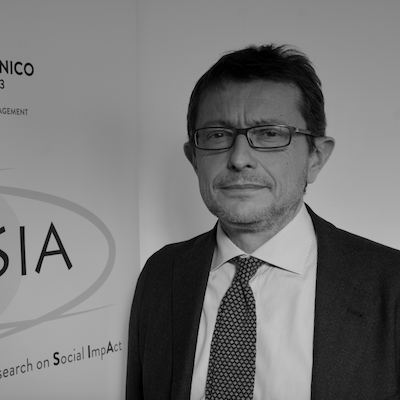
Mario Calderini
Professor of Social Innovation and Director of Tiresa at Politecnico di Milano

Rafael Chaves
Professor of Economic Policy and Social Economy at Universitat de Valencia,
Representation of CIRIEC-international at GECES

Ulla Engelmann
Head of Unit, Social Economy, Directorate General Internal Market, Industry, Entrepreneurship and SMEs, European Commission (DG GROW)

Rocío Nogales-Muriel
Director of EMES International Research Network

Marthe Nyssens
Professor of Social Economy at UCLouvain and
President of the EMES Research Network
#2 Session
Social Economy as part of an ecosystem – A conductive environment for the development and spread of new models, technologies and concepts
Wednesday 25th November 10:30am – 12:30pm
On the second day, Xabier Goenaga Beldarrain (Head of Unit, Knowledge for Finance, Growth and Innovation, EU Commission – JRC) explained the purpose of the second session in his welcoming remark: to look at dimensions that define the ecosystem and how this framework can be addressed to led the change in this field. Marieke Huysentruyt (HEC Paris) demonstrated strategies to scale and push innovations for the public good. Geoff Mulgan (University College London) described how important it is for social economy actors to keep up with the 4th Industrial Revolution to avoid being marginalized and what role open data as well as collective intelligence plays in this context. Alex Nicholls (Oxford University) illustrated the massive transfer of wealth in favor of the millennials and how we need to come up with creative ways to invest this money in the social economy to make up for investment shortfalls in the implementation of the SDGs. Lisa Hehenberger (ESADE) pointed out strategies and policy recommendations to move from proving impact to improving impact. Dominka Wruk (University of Mannheim), the session chair, directed the speakers in a discussion about insufficient transfer of social economy knowledge and practices as well as the need for sharing robust and reliable data for the common good. The session came to a close with the agreement that the EU is in a great position to foster a conducive environment for social economy.

Xabier Goenaga Beldarrain
Head of Unit, Knowledge for Finance, Growth and Innovation, Joint Research Centre, European Commission (JRC)

Lisa Hehenberger
Assistant Professor in the department of Strategy and General Management and Director
of the Entrepreneurship Institute at ESADE
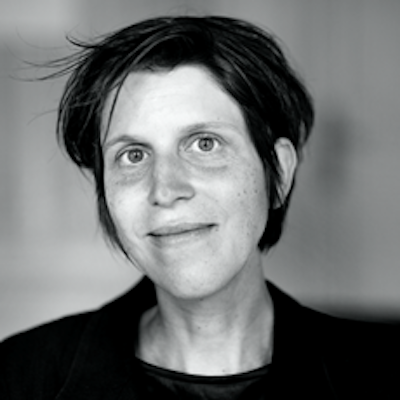
Marieke Huysentruyt
Assistant Professor at the Strategy & Business Policy Department at HEC Paris

Geoff Mulgan
Professor of Collective Intelligence, Public Policy and Social Innovation at University College London

Alex Nicholls
Professor in Social Entrepreneurship at University of Oxford

Dominika Wruk
Assistant Professor for Sustainable Entrepreneurship, Institute for SME Research, University of Mannheim
#3 Session
Social Economy as a partner for policy makers and the for profit sector – Principles, strategies and tools for accelerating innovative and impactful actions in the social economy
Wednesday 25th November, 2:30pm – 4:30pm
Antonella Noya (OECD) introduced this last #SES2020 session by expressing the importance of social economy’s crucial role in transforming societies and economies and inspiring other businesses to more responsible practices. Kai Hockerts (Copenhagen Business School) explained why social entrepreneurship as a concept is more important than social enterprise organizational forms and that there is not enough focus on the Schumpetrian social entrepreneurs that disrupt the system. Eleanor Carter (Oxford University’s Blavatnik School of Government) laid out important conditions for successful partnerships between private, public and social sector for a win-win-win scenario. Antonio Miguel (NOVA SBE, Maze – Decoding Impact) shared the learnings of five years of using EU structural funds for social investment and fostering social innovation in Portugal and gave valuable policy recommendations for other countries with the same endeavor. Eva Varga(Euclid Network) laid out a plan on how to implement socially responsible public procurement to measure social impact. Gorgi Krlev (CSI, Heidelberg University), the session chair, directed the discussion into talking about effective impact which concluded with the call for authentic communication about what works in the sector and what does not. This session and the #SES2020 as a whole closed with remarks by Mikel Landabaso Alvarez(Director Growth and Innovation, Joint Research Centre, EU Commission – JRC) and Slawomir Tokarski (Director Innovation and Advanced Manufacturing, Directorate General Internal Market, Industry, Entrepreneurship & SMEs, EU Commission – DG GROW) with referring to values the EU has been built on, such as fairness, solidarity and empathy. Slawomir Tokarski also summarized what he is taking from this conference to feed the EU’s policy reflection on the subject in the future.

Mikel Landabaso Alvarez
Director Growth and Innovation, Joint Research Centre, European Commission (JRC)
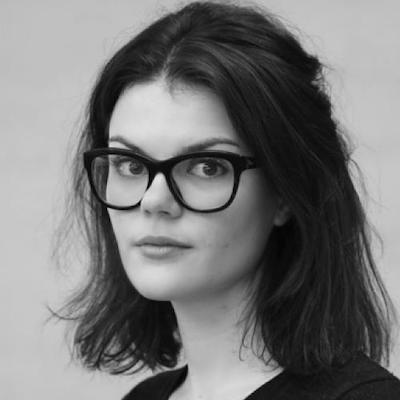
Eleanor Carter
Lead Researcher Government Outcomes Lab at Oxford University’s Blavatnik School of Government

Kai Hockerts
Professor in Social Entrepreneurship and Academic Director of Responsible Management Education at Copenhagen Business School

Gorgi Krlev
Post-Doc Center for Social Investment & Innovation at the University Heidelberg

Antonio Miguel
Managing Director of the Maze – Decoding Impact
Professor at NOVA SBE

Antonella Noya
Head of Unit, Social Economy and Innovation, Centre for Entrepreneurship, SMEs, Cities and Regions, OECD
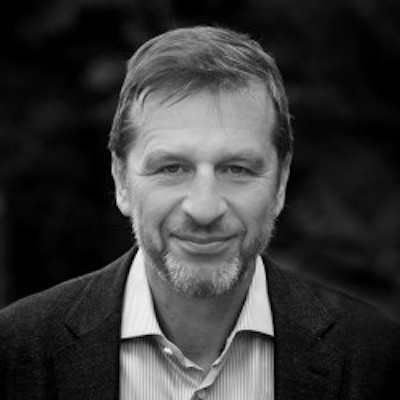
Slawomir Tokarski
Director Innovation and Advanced Manufacturing, Directorate General Internal Market, Industry, Entrepreneurship and SMEs, European Commission (DG GROW)

Eva Varga
Vice-President Euclid Network
Independent Researcher on Social Enterprise Development and Social Investment
2 Days, 15+ Top Social Economy Scholars & academics, 3 digital sessions
Organised & Supported by
Team
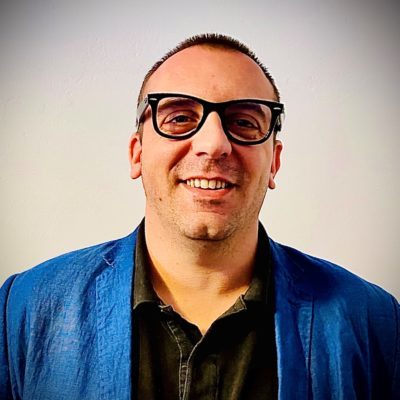
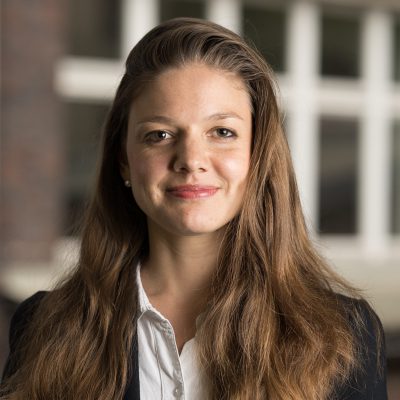
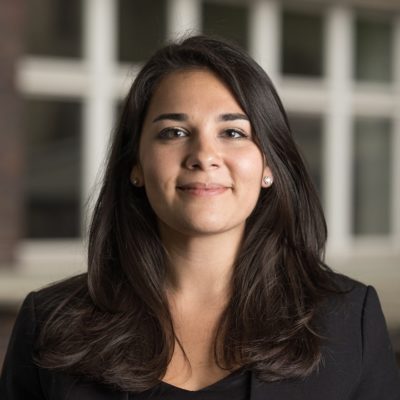
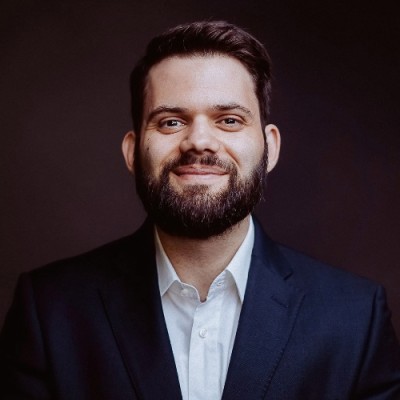


Giulio Pasi
Scientific Officer
Joint Research Centre at the European Commission
Marika Bernhard
Founder & Chairwoman
Social Entrepreneurship Baden-Württemberg e.V.
Larissa Hofer
Project Manager
Social Entrepreneurship Baden-Württemberg e.V.
Gorgi Krlev
Post-Doc
Center for Social Investment & Innovation University Heidelberg
Dominika Wruk
Assistant Professor
for Sustainable Entrepreneurship, Institute for SME Research, University of Mannheim
Christiana Benedetti Fasil
Economic Analyst
Joint Research Centre at the European Commission







